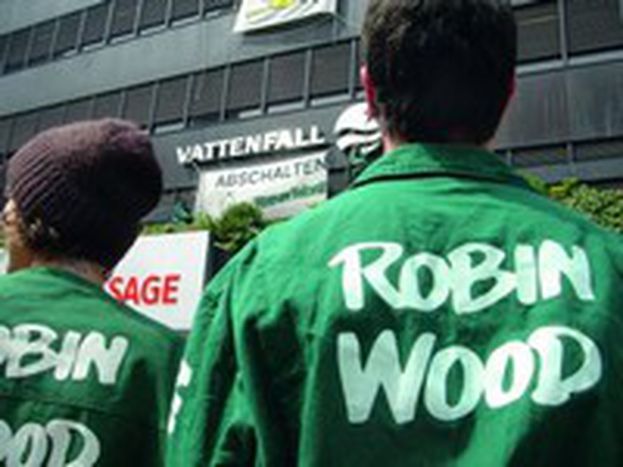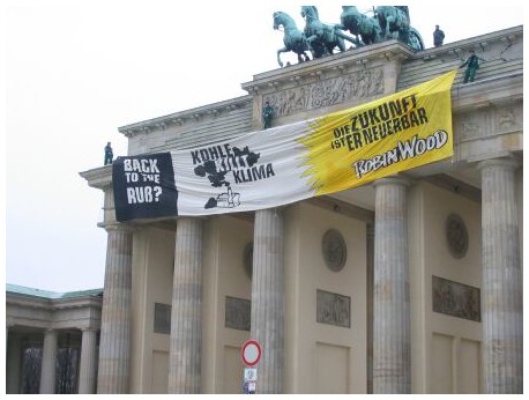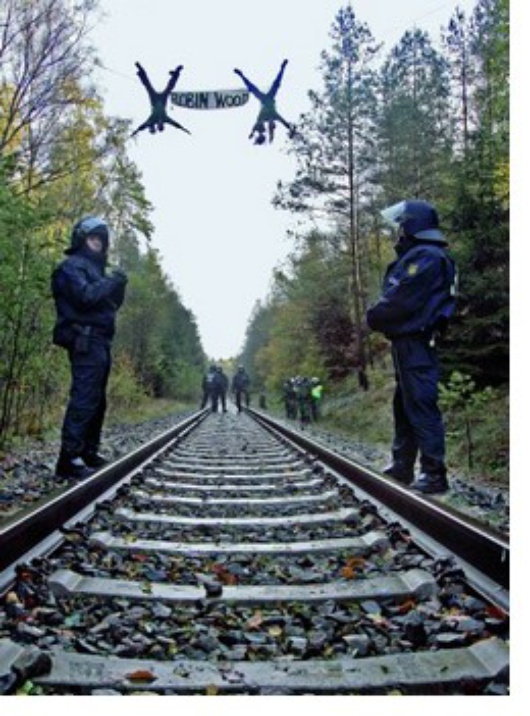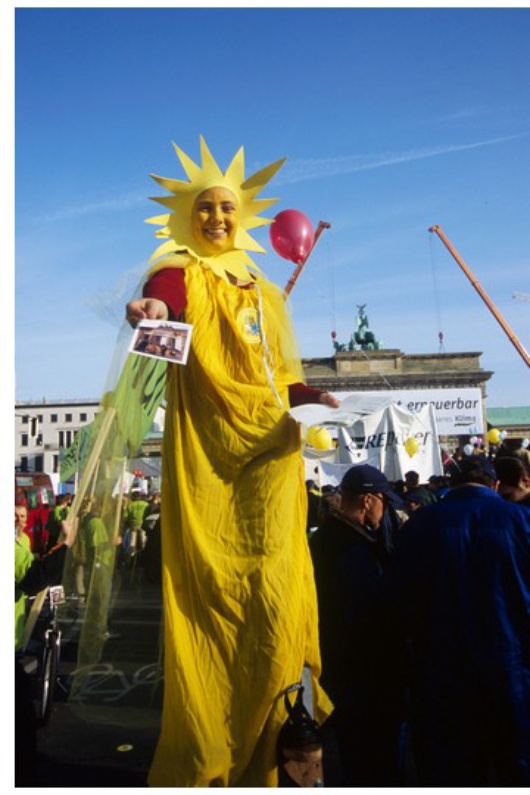
Robin Wood: Germany's bare branch avenger
Published on
Translation by:
 zoe brogden
zoe brogden
Several urban landmarks have been used to great effect by environmentalists as a political canvas to preserve forests. Today, creative and spectacular actions are still somewhat of a trademark
'Security can’t hold us back,' explains Hanna. Together with three fellow determined comrades, she scaled Berlin’s Brandenburg Gate by mounting flatter adjacent buildings. Then with the aid of a second, shorter rope, they reached the Gate’s summit. The large banner they were carrying was a hindrance, but, secured with ropes, they made it in the end. One policewoman gave chase, but suffering a lack of climbing equipment, she gave up and called for reinforcements. Strategically next to the quadriga of victory which crowns the gate, Hanna and her team rolled out the 20-metre long banner. The material cascaded down the building, its slogan reading Coal kills the climate, the future is renewable.
 That was at the end of March 2006. Hanna’s protest was strategically directed at the energy summit taking place on 3 April, at the behest of German chancellor Angela Merkel. 'Robin Wood' demanded the government reject atomic energy, advocate against the construction of new coal fired power plants and call for more renewable energy sources. 'It was a success,' reports Hanna with a smile.
That was at the end of March 2006. Hanna’s protest was strategically directed at the energy summit taking place on 3 April, at the behest of German chancellor Angela Merkel. 'Robin Wood' demanded the government reject atomic energy, advocate against the construction of new coal fired power plants and call for more renewable energy sources. 'It was a success,' reports Hanna with a smile.
Greener princes of thieves
 At just 22, Hanna Poddig sits on the board of 'Robin Wood', a nationwide German environmental protection group. In 1982, a dozen Greenpeace Germany activities finally had enough of a ‘centrally-planned and authoritarian’ organisation where actions were rejected which no longer fit into the organisation’s objectives. Feeling angered, 'Robin Hood' was born.
At just 22, Hanna Poddig sits on the board of 'Robin Wood', a nationwide German environmental protection group. In 1982, a dozen Greenpeace Germany activities finally had enough of a ‘centrally-planned and authoritarian’ organisation where actions were rejected which no longer fit into the organisation’s objectives. Feeling angered, 'Robin Hood' was born.
One of the aims of the group, according to their homepage, is the fight against the silent death of the forests. 'Frequently, our initiatives arise out of acute necessity. If I come across something interesting in the newspaper, I send around an email and then we all meet in order to devise a plan of action,' explains Hanna. There’s always an important event; demonstrations, a speech, running on stilts, concerts or information stands. Such activities coincide with events like the Atomic Forum’s winter conference in Berlin on the 6-7th February, or the meeting of the Swedish electricity producer Vattenfall. Vattenfall came to prominence in 2007 after several fires in its atomic reactors in the towns of Krümmel and Brunsbüttel, in the German state of Schleswig Holstein.
Robin Wood was originally based in Hamburg and Bremen, but has now spread across Germany to encompass 15 regional groups. Each group enjoys varying organiaational structures and a large degree of autonomy in planning and implementing their activities.  Although a purely German organiaation, it has already collaborated with groups in other countries across Europe. Hanna believes that in general, more explanation is needed on the climate issue, but the work should not be purely Eurocentric. Environmental refugees are a worldwide phenomenon, and the climate debate has been a global problem for a long time. For the last five years, Hanna has been an active protagonist, constantly organising activities against environmental polluters like Vattenfall. Studying is a sideline for her – she’s already found her dream job.
Although a purely German organiaation, it has already collaborated with groups in other countries across Europe. Hanna believes that in general, more explanation is needed on the climate issue, but the work should not be purely Eurocentric. Environmental refugees are a worldwide phenomenon, and the climate debate has been a global problem for a long time. For the last five years, Hanna has been an active protagonist, constantly organising activities against environmental polluters like Vattenfall. Studying is a sideline for her – she’s already found her dream job.
Translated from Robin Wood: Die Rächer der Entlaubten


